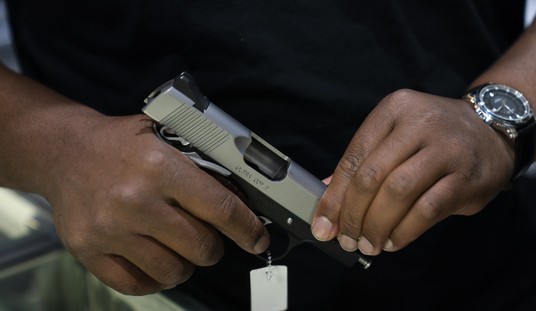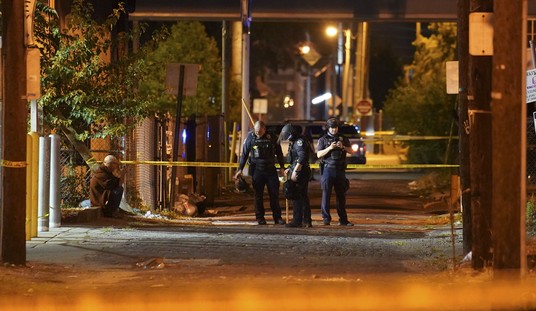It's been days since Minnesota Gov. Tim Walz has mentioned a special session in response to the shooting at Annunciation Church in Minneapolis in late August, so my guess is that the governor will instead take to the stump and try to drive up support for a semi-auto ban, prohibitions on "large capacity" magazines, and other measures ahead of the 2026 regular legislative session that will kick off in early February.
Walz was just handed some talking points from the anti-gunners at Johns Hopkins University's Center for Gun Violence Solutions, who've outlined a "roadmap" for "reducing gun violence" in the state that runs straight through the right to keep and bear arms.
The Center has a new policy roadmap to assist Minnesota legislators in reducing gun violence in the state.
— Johns Hopkins Center for Gun Violence Solutions (@JHU_CGVS) October 15, 2025
Read about the new guide: https://t.co/APza2y1xo3
While the center's post on X has received little attention, the legislative blueprint will be widely disseminated by Democrat lawmakers, and I expect that most, if not all, of the legislative proposals will find sponsors in the next session.
So what are the gun control academics calling for?
Authors have divided recommendations into six main categories:
- Adopt a general secure storage requirement
- Strengthen the Firearm Purchaser Licensing process
- Strengthen public carry restrictions and regulations
- Improve domestic violence firearm removal and relinquishment processes
- Prohibit the manufacture, sale, transfer, and possession of large capacity magazines
- Create an office of gun violence prevention
It's interesting that they're not pushing a ban on so-called assault weapons, but are instead focusing on magazine capacity. I don't know if that's a nod to the political realities in the legislature, or if the "researchers" at Johns Hopkins believe that laws prohibiting so-called assault weapons aren't likely to survive scrutiny by the Supreme Court.
As it is, though, what they are proposing would still blatantly violate our right to keep and bear arms. The center is calling for "a general law requiring safe storage and adopting a definition that requires firearms to be stored in locked, hard-sided containers and unloaded when they are not carried on someone’s person," which would make it much more difficult, if not impossible, to access and use firearms for self-defense in the home.
The anti-gunners also want to see a firearm purchaser licensing law that requires "applicants to complete a course in firearm safety and relevant laws or some other demonstration of similar training," including requiring "applicants to fire a specified number of rounds at a firing range to demonstrate proficiency." Minnesota already has a live-fire requirement to bear arms with a carry permit, but this would subject every gun owner to a similar test just to possess a firearm in the home.
The proposed magazine ban is probably the most egregious infringement on our 2A rights, however.
The Minnesota legislature should enact a law prohibiting the sale, transfer, attempted sale, attempted transfer, manufacture, and possession of magazines that hold more than 10 rounds of ammunition in the state. To address LCMs that were obtained before the ban was implemented, provisions should be included to allow for the modification or surrender of LCMs before the law takes effect. We recommend that the law allow for 180 days for the owners of LCMs in Minnesota to permanently modify their magazines to hold no more than 10 rounds of ammunition or surrender their LCMs to law enforcement.
There are hundreds of millions of magazines that can hold more than ten rounds in circulation in the U.S., which unquestionably makes them in common use. And while some criminals may use these magazines, they are owned and used by far more lawful gun owners for lawful activities like target shooting, hunting, and yes, self-defense.
The Johns Hopkins team doesn't say anything at all about cracking down on repeat, violent offenders or addressing the state's acute shortage of inpatient mental health beds and outpatient mental health resources. It's all gun control aimed at lawful gun owners, even though they have to be aware that a disproportionate amount of violent crime is committed by a small cohort of prolific criminals. What the Bloomberg-funded academics are offering isn't a roadmap to public safety, but a blueprint for turning a fundamental right into a privilege to be doled out in small portions to those who meet with the state's approval.









